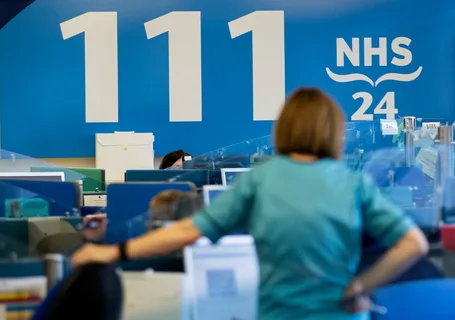
Current State of NHS Funding

The UK NHS Report highlights chronic underfunding issues that have been plaguing the National Health Service for years. This chronic underfunding has led to significant financial strain, making it increasingly difficult for the NHS to provide the high standard of care that patients expect and deserve. The report reveals that budget constraints are severely affecting services across the board. From basic medical supplies to advanced technological equipment, the financial limitations are palpable, leading to a ripple effect that impacts every aspect of healthcare delivery. The constraints are not just limited to tangible resources but extend to staffing and infrastructure, further exacerbating the challenges faced by the NHS.
Staffing Shortages and Their Impact
The UK NHS Report sheds light on the severe staffing shortages that are currently affecting the health system. These shortages are not just a minor inconvenience; they are a critical issue that has far-reaching implications for patient care and overall system efficiency. The report reveals that the lack of sufficient medical professionals is leading to increased workloads for existing staff, which in turn affects their ability to provide quality care. Health system woes are deeply intertwined with these staffing shortages, as the report indicates that the lack of personnel is one of the primary factors contributing to the declining performance of the NHS. The shortage of staff is not just a numbers issue but also a quality issue, as overworked and stressed staff are more likely to make errors, further compromising patient safety.
Patient Wait Times and Delays

The UK NHS Report highlights increasing patient wait times, a critical issue that is becoming more pronounced with each passing year. Long wait times for consultations, diagnostic tests, and treatments are not just inconvenient but can also have serious implications for patient outcomes. The report reveals that delays in treatment are worsening, with many patients having to wait months for procedures that should ideally be performed within weeks. This increase in wait times is a direct consequence of the aforementioned staffing shortages and budget constraints, creating a vicious cycle that is difficult to break. The delays are not just limited to elective procedures but also affect emergency care, making the situation even more dire.
Access to Mental Health Services
The UK NHS Report highlights significant mental health service accessibility issues, a growing concern in today’s healthcare landscape. Mental health services are crucial, yet they are often the first to suffer when budget cuts and staffing shortages occur. The report reveals long wait times for mental health services, which can be particularly detrimental given the urgent nature of many mental health conditions. Patients in need of psychological support or psychiatric care are finding it increasingly difficult to access the services they need, leading to worsening conditions and, in some cases, crises that could have been prevented with timely intervention. The lack of accessibility is a glaring issue that needs immediate attention.
Infrastructure and Equipment Challenges
Aging infrastructure is another critical issue highlighted in the UK NHS Report. Many NHS facilities are operating out of buildings that are decades old, with some even dating back to the pre-World War II era. This outdated infrastructure is not just an aesthetic issue; it has real implications for patient care and safety. The report also points out that equipment shortages are impacting patient care, making it difficult for healthcare providers to deliver the high standard of care that patients expect. From MRI machines to basic diagnostic tools, the lack of modern equipment is a significant barrier to effective healthcare delivery. These infrastructure and equipment challenges are compounded by budget constraints, making it difficult to address these issues in a timely manner.
Public Perception and Trust
Public trust in the NHS is eroding, as indicated by the UK NHS Report. This erosion of trust is a natural consequence of the various woes plaguing the health system, from staffing shortages to long wait times and aging infrastructure. The report finds that health system woes are having a significant impact on public perception, with many people losing faith in the NHS’s ability to provide quality care. This declining trust is not just a public relations issue; it has real implications for patient engagement and compliance with medical advice. When people lose trust in their healthcare system, they are less likely to seek care when needed, further exacerbating health issues and increasing the burden on an already strained system.
Future Projections and Solutions

The future projections in the UK NHS Report predict increased patient demand, a trend that shows no signs of slowing down. As the population ages and the prevalence of chronic conditions rises, the demand for healthcare services is expected to grow exponentially. The report suggests that without significant changes, the NHS will struggle to meet this increased demand, leading to even longer wait times and further declines in the quality of care. To address these challenges, the report suggests investment in digital health technologies as a potential solution. Digital health technologies, such as telemedicine and electronic health records, could help streamline processes, improve efficiency, and ultimately enhance patient care. However, these solutions will require significant investment and a willingness to embrace change, both of which are currently in short supply within the NHS.










